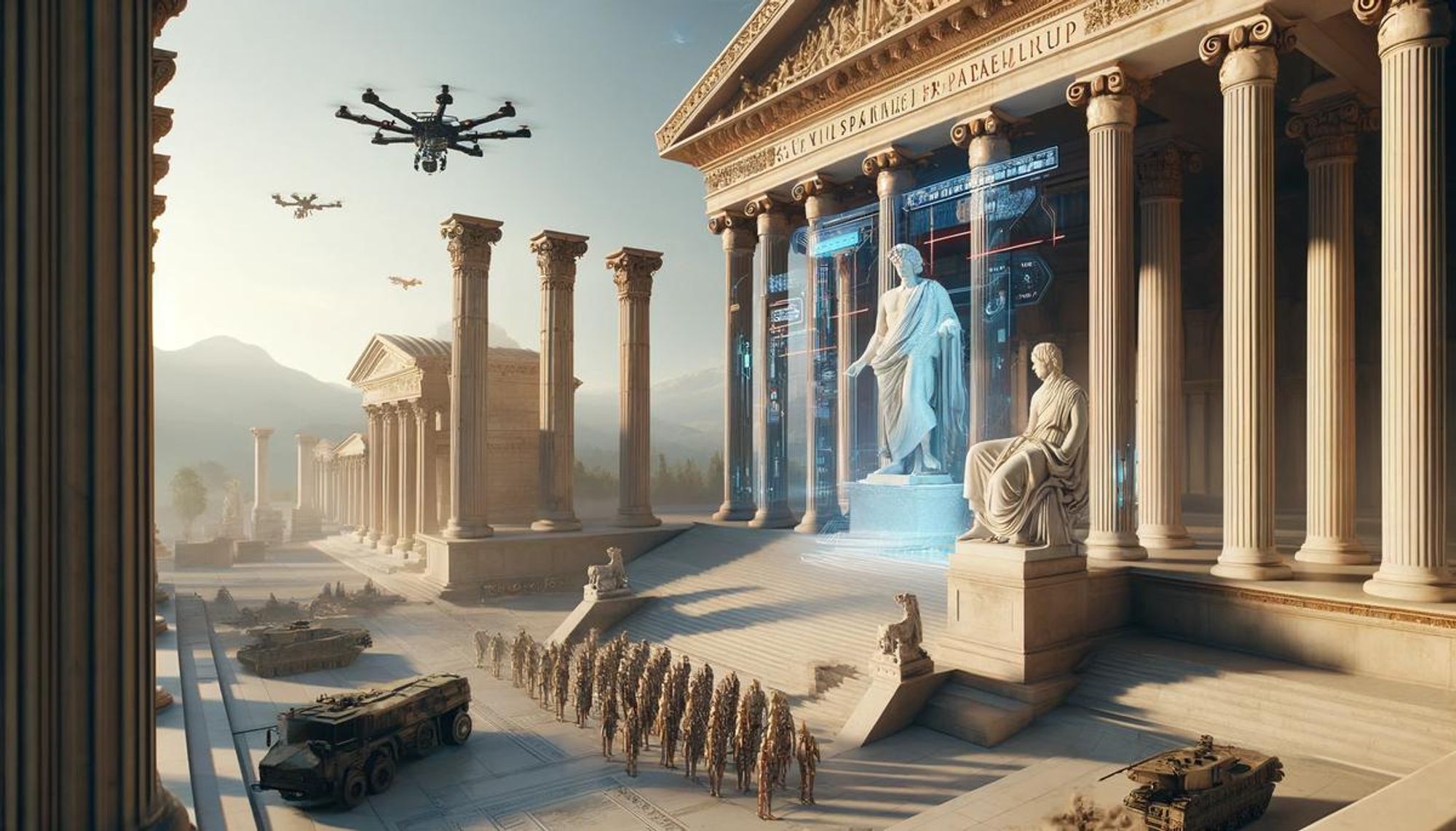Artificial intelligence impact on news is a bleak warning for all of us
date
Apr 21, 2024
slug
2024-artificial-intelligence-impact-on-news-is-a-bleak-warning-for-all-of-us
status
Published
tags
Artificial intelligence
AI
journalism
media
regulation
type
Post
summary
Journalism’s imperfections are like a blessing if compared to the dystopic scenarios AI can create if operating by incentives unrelated to the greater good.

How are we going to be informed in 5 to 15 years? This was the backdrop of an even hosted by Open Foundation Society last week. A round table with 50 of the most relevant and smart people in the media, tech, civil society and related business tried to forecast how artificial intelligence will impact the way we get information. The forecast is not sweet at all. From the wipeout of the journalism industry until a corporation game where citizens are forced to choose the services of very few providers, without no alarmism, the message we got was: we must act, now, or it will be too late (and maybe it already is).
There are some things that are crystal clear already. Governments must enforce AI regulation (which will implicate in implementing a long overdue regulation in social media, ads and other digital services) asap because the potential AI has is devastating, and it could be to make a revolution overnight, leading to scenarios that are impossible to preview (most of them very gloomy). As AI is a technology that can affect virtually everything, the reach of this legislation cannot stop in how media works, but certainly this is one of the crucial industries to affect because it can enable the domino effect in virtually everything, from law to grain logistics.
There was a debate about the specifics of AI in events like breaking news or in the impact in a workforce that has been battered for more than two decades. Those are concerns that have a narrower reach that is most localized for the industry, but the outputs it creates are certainly a threat to the way society works. Imagine a major terror attack at a time where AI has a free reign to work in the newsroom. The news output of the coverage would work on the trending topics, so the hype in social media can direct the news production in the most crucial times of a coverage, leading to potential disasters, like if someone tip about who is a potential suspect that ends up killed until someone finds out it was a hoax. This is a scenario that is highly likely in a market without regulation.
A huge soul-searching process went through as well about the relevance of the work of journalists as the custodians of the public good. Journalists are usually picky on this, and non journalists often are fast to point fingers to the category, with accusations ranging from bias to individualism. A good share of the accusations strike some nerves, but a counter-accusation give a good idea of the core of the debate: who is better trained to produce information in a way that observes ethics principles, techniques and an unique mindset than who received training for it? It’s clear that lots of originally non-professional individuals are very good at it, but one does not exclude the other. It’s clear that a society that informs itself on Facebook and Twitter will be hostage to disinformation, so the debate is far from over, but if we don’t hurry, it might be too late to choose the best way to handle the news.
A glimmer of hope comes from the need of the information industry to reinvent itself. We are virtually slaves of a business model that hands such a leverage to Google, Meta, Twitter and now OpenAI, that they basically can dictate the rules of engagement in a way they drain virtually all the money on the table. However, new frameworks recently created (meaning, in the last years) show possibilities where decentralisation with commitment became a feasible way to fight back and sit in the table with the tech giants ready to play a tough game.
After all, the scenarios we are facing are complex and interconnected, and a holistic approach is necessary to fully grasp and tackle the challenges ahead. This is a very complex situation where the amount of elements is nearly infinite, once we truly don’t know how future will surprise us, but if we keep in mind the end goals that can pose us danger, it will be easier do coordinate. From now on, everything should move together, or we will have a tough time sorting out the mess after.